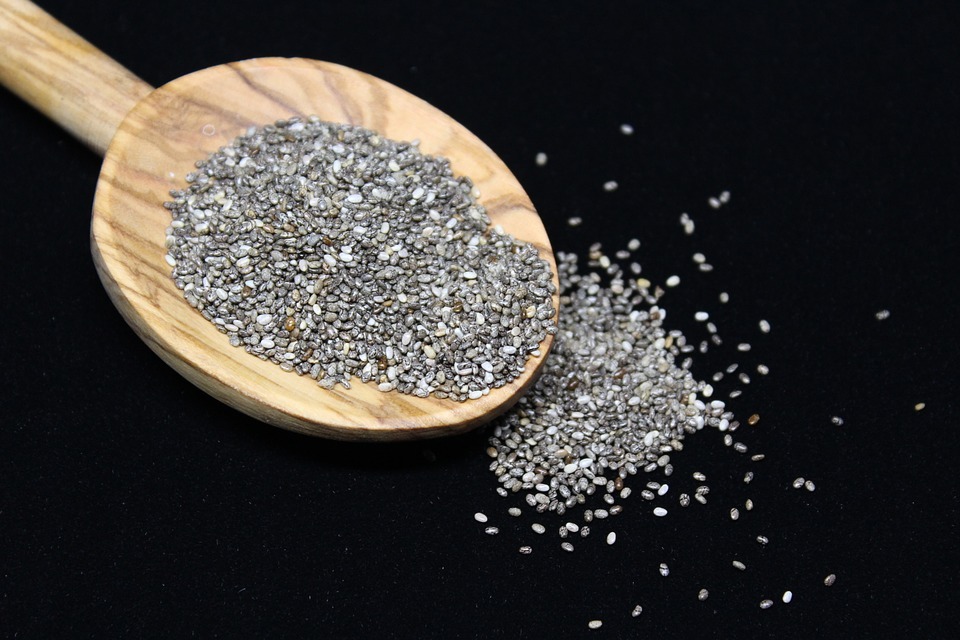Once a relative unknown, chia seeds are now highly regarded as one of the “superfoods” among health and wellness enthusiasts.
An interest towards changing to (and maintaining) a healthy lifestyle has been increasing over the last few years. Because of this, it has prompted recent studies on novel superfoods, such as acai berries, green tea, cacao nibs, and chia seeds. All of these superfoods have their own nutritional and disease prevention qualities and characteristics. But in this article, we focus on chia seeds and their proven health benefits.
What are chia seeds?
Chia seeds are edible seeds of the chia plant (Salvia hispanica), which is related to other plants such as mint and basil. Chia seeds are considered pseudocereals – they are not members of the grass family but are used in a similar way just like regular grains.
Long before its discovery by the Western world, chia seeds had been widely cultivated in the Americas during pre-colonial times. Like many pseudocereals, chia seeds are gluten-free alternatives to conventional cereals and thus have been recommended to those who have gluten sensitivities or Lyme disease.
Main health benefits of chia seeds
High in nutrients and low in calories
Don’t be fooled by their tiny size, because chia seeds pack a nutritional wallop! Chia seeds are indeed one of the most nutritious foods on the planet. An ounce (28 grams) of serving of chia seeds will provide you with the following nutrients:
- 11 grams of fiber
- 4 grams of protein
- 9 grams of fat (five of which are omega-3s)
- Calcium – 18% of the recommended daily intake (RDI)
- Magnesium – 30% of the RDI
- Manganese – 30% of the RDI
- Phosphorous – 27% of the RDI
- Chia seeds also contain decent quantities of vitamin B1 (thiamine), vitamin B2, vitamin B3 (niacin), potassium, and zinc.
Loaded with antioxidants
The antioxidants found in chia seeds protect the sensitive fats in them from going rancid. But most importantly, the antioxidants in chia seed fight the production of free radicals, which can otherwise damage cells that contribute to aging and several illnesses.
High in quality protein
Chia seeds contain a decent amount of protein. They have about 14% protein when weighed, which is relatively high compared to most plant food.
Chia seeds also contain a decent balance of amino acids, so your body can make use of their protein content. They make a good source of protein, especially for people who eat little or no meat or other animal-derived food products.
Most carbs are loaded with fiber
An ounce of chia seeds has around 12 grams of carbs, but 11 of these carbs contain fiber, which the body doesn’t digest.
The fiber content in chia seeds is drastically different from that of digestible carbs like starches found in rice, bread, sugar, and potatoes. Thus, the chia seeds’ health effects are drastically different from those of the conventional carbs.
The highly soluble fiber content allows chia seeds to absorb up to 10 to 12 times their weight when soaked in water, expanding and becoming gel-like. Thus, a diet that includes chia seeds can make your belly full. That fullness encourages slow absorption of food, thus making you feel less hungry and avoid unnecessary food cravings.
The fiber from the chia seeds feeds the good bacteria in your intestine, which is crucial because it keeps your gut flora well-fed. And that’s good for your health!
The high fiber and protein content may help lose weight, which is ideal for the weight-watchers.
High in omega-3 fatty acids
A fun fact about chia seeds: they contain a lot more omega-3 fatty acids than salmon, gram for gram.
But it’s important to note that the omega-3 fatty acids in chia seeds are mostly alpha-linoleic acid (ALA), which needs to be converted into active forms like eicosapentaenoic acid (EPA) and docosahexaenoic acid (DHA) before your body will be able to use it. Unfortunately, the human body cannot convert ALA into these active forms.
In addition, plant-based omega-3 fatty acids are significantly inferior compared to animal-based omega-3 fatty acids like those found in fish oil. Because chia seeds do not provide DHA – the most important omega-3 fat – most experts conclude that chia seeds produce lower-quality omega-3 fatty acids.
In order to get the DHA that your body and brain need, you should either eat fatty fish or take fish oil supplements. But if you are a vegetarian or vegan, take plant-sourced DHA supplements as an alternative.
Other important benefits of chia seeds:
They may lower the risk of heart disease.
They promote bone health, since they have nutrients like calcium and magnesium.
They help in reducing blood sugar levels.
They help in reducing chronic inflammation.
Chia seeds are very versatile food products. They can be incorporated into salads, drinks, smoothies, cereals, breads, and health bars because of their incredible nutritional content. If love to drink fruit juices, consider adding chia seeds to get their health benefits!


